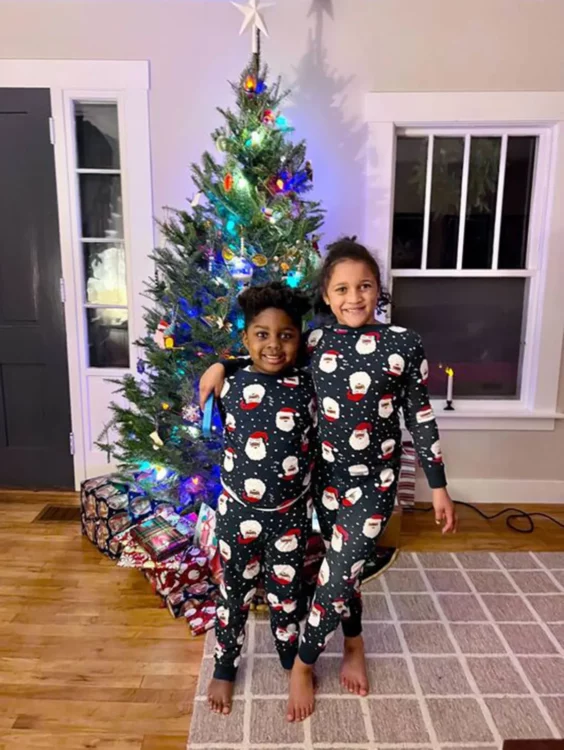Why parents say Black Santas are important for children to see
Share
Explore Our Galleries
Breaking News!
Today's news and culture by Black and other reporters in the Black and mainstream media.
Ways to Support ABHM?
By Rosie Colosi, NBC
The holidays are a magical time and when you have Black children, one parent said, it’s important they know “someone as magical and as amazing as Santa can be Black like them too.”

When you buy Santa pajamas for your kids, do you pause to examine the color of Santa’s skin?
These moms do.
“The second Labor Day hits, I order Black Santa pajamas,” says Rebecca Kaiser of Charlestown, Massachusetts. Old Navy was one of the first places she found Black Santa pajamas for her children, daughter Haven, 9, and son Zeke, 6, and buying them there has become a tradition. This year, you can even purchase the same set of pjs with Santas in three different hues: beige, walnut or cocoa.
Because Kaiser and her wife, Natalie Wagner, have a different racial background than their adopted children, they go the extra mile to make sure that Haven and Zeke feel represented in all aspects of their lives.
“When it comes to the holidays, we have always looked at this as an extension of the importance of cultural representation so that they can see that someone as magical and as amazing as Santa can be Black like them too,” Kaiser says.
[…]
New York City-based therapist Colette Brown thinks it is essential for kids to see non-white Santas.
“Psychological research shows that role models who reflect the child’s identity and experience have a positive impact upon the development of self-esteem which leads to improved academic performance, self-confidence and mental wellness,” she tells TODAY.com.
“Santa Claus is magical, generous and benevolent. He holds every person as special and unique. What child would not benefit from an image of themselves reflected in such a being?”
Read more about the importance of racial representation for children in the original article.
Read about another way Black representation is breaking into pop culture in this Breaking News article.
Find even more Breaking News here.









Comments Are Welcome
Note: We moderate submissions in order to create a space for meaningful dialogue, a space where museum visitors – adults and youth –– can exchange informed, thoughtful, and relevant comments that add value to our exhibits.
Racial slurs, personal attacks, obscenity, profanity, and SHOUTING do not meet the above standard. Such comments are posted in the exhibit Hateful Speech. Commercial promotions, impersonations, and incoherent comments likewise fail to meet our goals, so will not be posted. Submissions longer than 120 words will be shortened.
See our full Comments Policy here.